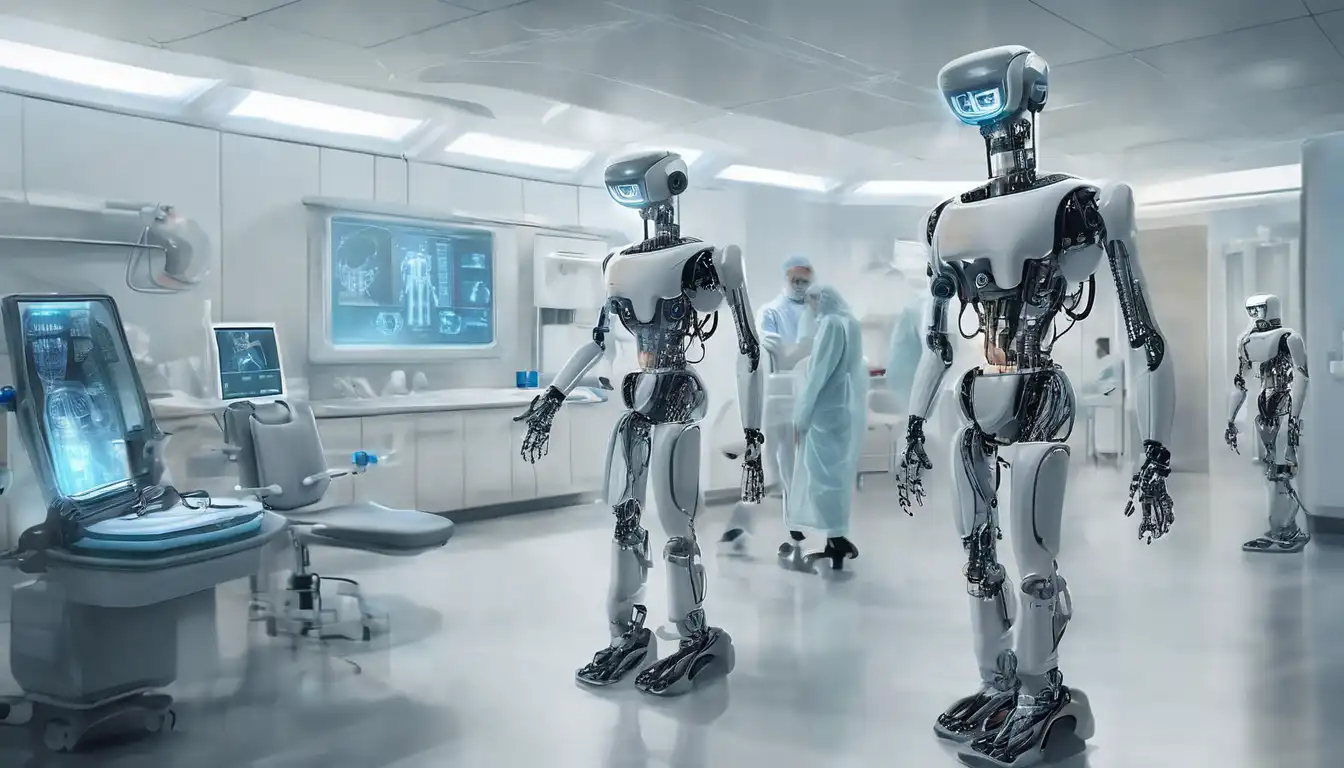The Next Era of Robotics in Healthcare
The integration of robotics into healthcare is transforming patient care, surgical procedures, and rehabilitation processes. This revolutionary shift is not just enhancing the efficiency of healthcare services but also improving the accuracy and outcomes of medical treatments. As we delve deeper into the future, the role of robotics in healthcare is set to become more pivotal, offering unprecedented opportunities for innovation and improvement in patient care.
Transforming Surgical Procedures
Robotic surgery, a significant advancement in medical technology, allows surgeons to perform complex procedures with more precision, flexibility, and control than conventional techniques. The use of robotics in surgery minimizes the risk of complications, reduces patient recovery time, and improves the overall success rates of surgeries. With continuous advancements, robotic systems are becoming more sophisticated, enabling even more delicate and intricate procedures to be performed with minimal invasiveness.
Enhancing Patient Rehabilitation
Robotics is also making waves in the field of rehabilitation. Robotic exoskeletons and prosthetic limbs are providing patients with mobility impairments the opportunity to regain movement and independence. These technologies are not only improving the quality of life for individuals but are also reducing the physical strain on healthcare professionals during patient rehabilitation processes.
Streamlining Healthcare Operations
Beyond direct patient care, robotics is streamlining healthcare operations. Automated systems are being employed for tasks such as medication dispensing, patient monitoring, and even cleaning and sterilization in hospitals. This not only increases operational efficiency but also allows healthcare professionals to focus more on patient care rather than administrative tasks.
The Role of AI in Healthcare Robotics
Artificial Intelligence (AI) is a key driver in the evolution of healthcare robotics. AI algorithms enable robots to learn from data, make decisions, and perform tasks with minimal human intervention. This synergy between AI and robotics is paving the way for more personalized and efficient patient care, from diagnosis to treatment and follow-up.
Challenges and Ethical Considerations
Despite the promising future, the integration of robotics in healthcare is not without challenges. Issues such as high costs, the need for specialized training, and ethical considerations regarding patient privacy and the extent of automation in care must be addressed. However, with ongoing research and development, solutions to these challenges are being sought to ensure that the benefits of robotics in healthcare can be fully realized.
The future of robotics in healthcare is bright, with the potential to revolutionize every aspect of patient care. As technology continues to advance, the possibilities for innovation and improvement in healthcare are limitless. The next era of robotics in healthcare promises not only to enhance the efficiency and effectiveness of medical treatments but also to redefine the standards of patient care worldwide.
